International
For virus-tamer Merkel, global alliances trumped nationalism

BERLIN (Reuters) – Travelling in convoy through the Chinese city of Wuhan last September, Angela Merkel called a halt. As her party crossed a bridge over the Yangtze river, the German Chancellor wanted to hear about a grand gesture by revolutionary leader Mao Zedong.
She posed for a picture on the bridge over the river where, in 1966, Mao joined an annual swim down the river in a symbolic demonstration of his vigour and leadership. It was only a quick photo opportunity, but Merkel and her delegation were visiting what was to become ground zero of a pandemic that has killed more than 400,000 worldwide.
That Wuhan visit helped shape Merkel’s response to COVID-19, three people close to the chancellor told Reuters.
To many in the West, Wuhan is a remote place, renowned for an open-air market where the new coronavirus may have crossed into humans. Merkel saw at first hand a major thoroughfare and busy hub of China’s industrial power. If the disease was serious enough to force a metropolis of 11 million people to quarantine itself and come to a complete stop, people close to her said, she saw it must be serious.
Merkel – unlike leaders including British Prime Minister Boris Johnson and U.S. President Donald Trump – supported a quick lockdown and widespread testing. These are two elements that have been widely credited by epidemiologists for keeping Germany’s reported fatalities lower than many countries, especially outside Asia.
Germany has reported almost 9,000 COVID-19 deaths, versus more than 110,000 in the United States and over 40,000 in the United Kingdom, according to a Reuters tally. On a per capita basis, the German toll is one-third that of America and one-sixth that of the UK.
Her response boosted her image: Around 66% of Americans think Germany has done a good job of tackling the virus, according to a survey from late April and early May by the Pew Research Center. At home, support for her conservative bloc has risen from 26% in early March to 40% now, surveys by pollster Forsa show. The ecologist Greens have been the main casualty. The nationalist Alternative for Germany (AfD) has also slipped back, to 8%.
Merkel declined to comment for this story. But accounts from business leaders, regional heads and those close to the chancellor give a rare inside view of how she handled the pandemic. It’s a story that shows how, in Germany as in the United States and elsewhere, COVID-19 is exposing deep tensions between states’ nationalist and collaborative styles of leadership.
Trump, after initially praising China’s reactions, changed tack as the pandemic progressed and said he would cut ties with the World Health Organization (WHO), which he said was unduly pressured by Beijing.
Germany also briefly turned inwards, banning exports of medical supplies, but then reversed that. Merkel, while agreeing the WHO needs to be reformed, spoke out to defend international alliances which are working to develop a vaccine.
“The difference between these approaches is stark,” said Thomas Kleine-Brockhoff, Vice President at the German Marshall Fund of the United States, which promotes U.S.-European ties.
“It represents the difference between nationalism and internationalism.”
Asked for comment, a senior U.S. administration official said the WHO cannot credibly carry out its mission until it reforms. “The United States remains committed to working with our strong ally Germany across the range (of) important global and bilateral issues of mutual concern, including coordination on anti-pandemic efforts,” the official said.
Chinese links
As a scientist with a doctorate in quantum chemistry, Merkel was already concerned about pandemic risk: In 2014, she and her chief-of-staff, Helge Braun, were closely involved in trying to help West Africa contain an outbreak of Ebola, those close to her said. They worked then with the United States, Norway and others to strengthen the WHO to handle such a crisis.
When the virus hit Europe, its early outbreaks were in Italy and France. “The virus did not come unnoticed to Germany,” said Braun. “We could prepare ourselves.”
To fight the virus at home, though, Merkel had to calibrate her actions with the interests and views of the leaders of 16 regions. This is because under Germany’s federal system, almost all responsibility – and power – in a health crisis is held at state or municipal level.
Everyone was concerned about the economy. China is Germany’s biggest trading partner, and goods worth 206 billion euros ($230 billion) were traded between the two countries in 2019, German Statistics Office figures show.
Merkel’s recent state visit to Wuhan helped those who were with her – two dozen CEOs of small and large companies – understand the potential consequences of the disease, said Joe Kaeser, CEO of manufacturing group Siemens AG, who was among them.
He said that as early as Jan. 12, on the top floor of the Axel Springer high-rise in Berlin, the subject came up in talks on the sidelines of a meeting among business leaders and politicians. “We were mentally prepared because we deal with China more intensively than, say, the U.S. or many of our European partners,” he told Reuters.
On Jan. 22, a day before Wuhan shut down completely, Merkel had a phone call with China’s President Xi Jinping to discuss Germany’s coming presidency of the European Union and trade issues.
Days later, its first known cases of COVID-19 arose in a Bavaria-based company that Merkel had visited in Wuhan.
On Jan. 27, German car parts maker Webasto Group, whose Wuhan office Merkel had opened, went into full containment mode after a visiting Chinese colleague tested positive. She inquired about how many people in Webasto were infected and how, the people close to her said.
In February, Merkel met privately with China’s foreign minister in Berlin. He informed her of the measures China had taken, sources close to her said. Germany sent protective gear and clothing and disinfectant to China.
Berlin kept up this dialogue. Meanwhile, as America’s outbreak intensified and the White House came under fire over its response, Trump ramped up criticism of Beijing, calling the disease “the China virus” and threatening new tariffs.
Asked to comment, China’s foreign ministry said it and Germany had worked together and helped each other in the fight against the coronavirus, adding that the WHO as an international institution cannot serve only one country. “At present, the suppression or even blackmail of the WHO by some countries lacks the minimum humanitarian spirit and will not be accepted by the international community,” it said in a statement to Reuters.
‘Quiet as mice’
In early March, an explosion in COVID-19 cases strained Italy’s health service and prompted a nationwide lockdown. German infections were growing more slowly and there was no consensus for dramatic action. The German media criticised Merkel as slow to speak out about the virus while her health minister and chief-of-staff took the lead. Regional leaders were at odds over how seriously to respond, those involved told Reuters. Eastern states wanted stricter measures than the others.
Then on March 11, the WHO declared the disease a pandemic.
The next day, Merkel called the heads of Germany’s regions to a meeting in the international conference room on the first floor of the chancellery. She also invited Germany’s top virus experts, asking them to present their views first, people who were at the meeting said.
Three scientists warned that even Germany’s well-supplied hospitals could be overburdened as early as June if the pace of new infections continued.
“When the three gave their lectures, the others in the room were quiet as mice,” recalled one participant.
After the presentation, all 16 state leaders agreed that only restrictions to public life could contain the virus. Merkel and the leaders announced steps including bans on travelling in coaches, religious meetings, visiting playgrounds and tourism.
Those close to Merkel said she had waited to step in publicly until the problem justified a nationwide response.
On March 18, she hit hard. For the first time in 15 years in office, she made a TV address other than her traditional New Year’s Eve speech. Some 25 million viewers tuned in to hear her defend the measures.
“Since German reunification, actually, since World War Two, there has never been a challenge for our country in which acting in solidarity was so very crucial,” she told them.
Merkel, who said in October 2018 she would not seek re-election as chairwoman of her Christian Democrats party, saw her approval ratings shoot above 80%. Mass-selling daily Bild asked on April 3 whether she could run for a fifth term – speculation she has since repeatedly dismissed.
“In the past three months I have learned a lot from Merkel about how to act in crises,” said one state premier who is not generally a fan of the chancellor.
‘Shot in the foot’
Nevertheless, as countries worldwide realised the risks of infection, many – including Germany – joined a self-interested scramble for protective gear.
On March 4, Germany’s economic and health ministries were among those banning the export of protective equipment such as masks, gloves, and suits, to try to stem panic and take control of supplies. When Italy first asked for urgent medical supplies, no EU country would help.
This ran counter to the internationalist principles Merkel had stressed. Politicians across Europe started calling on each other to be less selfish – France’s President Emmanuel Macron said the European Union risked collapse as a political project.
As these protests mounted, the European Commission, the EU’s governing body, stepped in, pressing countries to lift bans and trying to organise supplies for smaller member states. Germany and France dropped their export bans, and the direction of discussion shifted back from inward-looking debates. Several German regions opened their intensive care beds to Italian and French patients.
With the export ban, Merkel later told parliament, “We shot ourselves in the foot” by erecting barriers to supplies between EU partners.
Since then, her focus has been firmly on beefing up alliances – up to a point. In April, her government told a German member of parliament it had not complied with requests by Chinese diplomats for Germany to make “positive public statements” on China’s coronavirus management.
In May, in a departure from decades of frugality, Merkel agreed with Macron on a plan to create an additional 500 billion euros of spending power, via EU-level borrowing, as economic relief for countries most hit by the crisis.
She also set out Germany’s support for global cooperation through the WHO, the international health body that Trump dumped.
On May 4, she co-hosted with the WHO and the EU a conference pledging funds to develop a vaccine to be available to the world. Germany said it would contribute 525 million euros to a global fund to search for vaccines and a treatment.
“The WHO is the legitimate international organisation (to combine all these efforts),” she told a May 18 teleconference of its governing body, the World Health Assembly, in a direct contradiction of the U.S. position.
“This crisis can’t be solved by one country alone,” she said. “We have to act together.”
Reporting and photo: Reuters
International
Nika Zorjan’s ‘V Postelji’ music video showcases timeless beauty of Maldives

Released just three weeks ago, Nika Zorjan’s latest music video, ‘V Postelji’ (meaning “In Bed”), has captivated audiences with its stunning cinematography set against the breathtaking backdrop of the Maldives. Directed by videographer Niko Karo, who accompanied Nika to film the video, the project was organised by Moji Maldivi, an agency based in Slovenia dedicated to promoting the Maldives as a premier holiday destination in Balkan region.
The video beautifully captures Nika strolling through serene pathways shaded by iconic coconut palm trees at Villa Park, later walking along the sun-kissed beaches of Villa Nautica, and finally enjoying the golden sunset on a bed at the beach of Furaveri Maldives. Each scene showcases the natural beauty and tranquil ambiance of the Maldives, enhancing the emotional depth and visual splendour of the music video.
Nika Zorjan, renowned as a Slovenian pop star and Eurovision contestant, has also gained fame for her cover songs, including her most popular rendition of Sia’s Cheap Thrills, which has amassed nearly 50 million views on YouTube, with over 60 million total views on the platform. “Shooting a video in the Maldives is heavenly,” she added. Filmed in one of the world’s most captivating tourist destinations, the Maldives serves as more than just a scenic backdrop; it becomes an integral part of the video’s narrative.
V Postelji not only showcases Nika Zorjan’s musical prowess but also pays homage to the Maldives’ timeless allure and cultural richness. The video has resonated deeply with audiences, garnering praise for its artistic vision and the mesmerising beauty of the Maldivian landscape. The lush greenery, crystal-clear waters, and pristine beaches depicted in the video create a sense of paradise that complements the song’s evocative lyrics.
As viewers continue to immerse themselves in the captivating visuals and emotive melodies of V Postelji, it reinforces the Maldives’ reputation as a destination where natural beauty and tranquility converge effortlessly. Nika Zorjan’s collaboration with Niko Karo underscores their shared appreciation for the Maldives’ serene ambiance and its ability to inspire creativity and emotional expression. This partnership, facilitated by Moji Maldivi, highlights the agency’s dedication to showcasing the Maldives as an unparalleled holiday destination to the Balkan market.
Featured
Emirates undertakes largest known fleet retrofit project
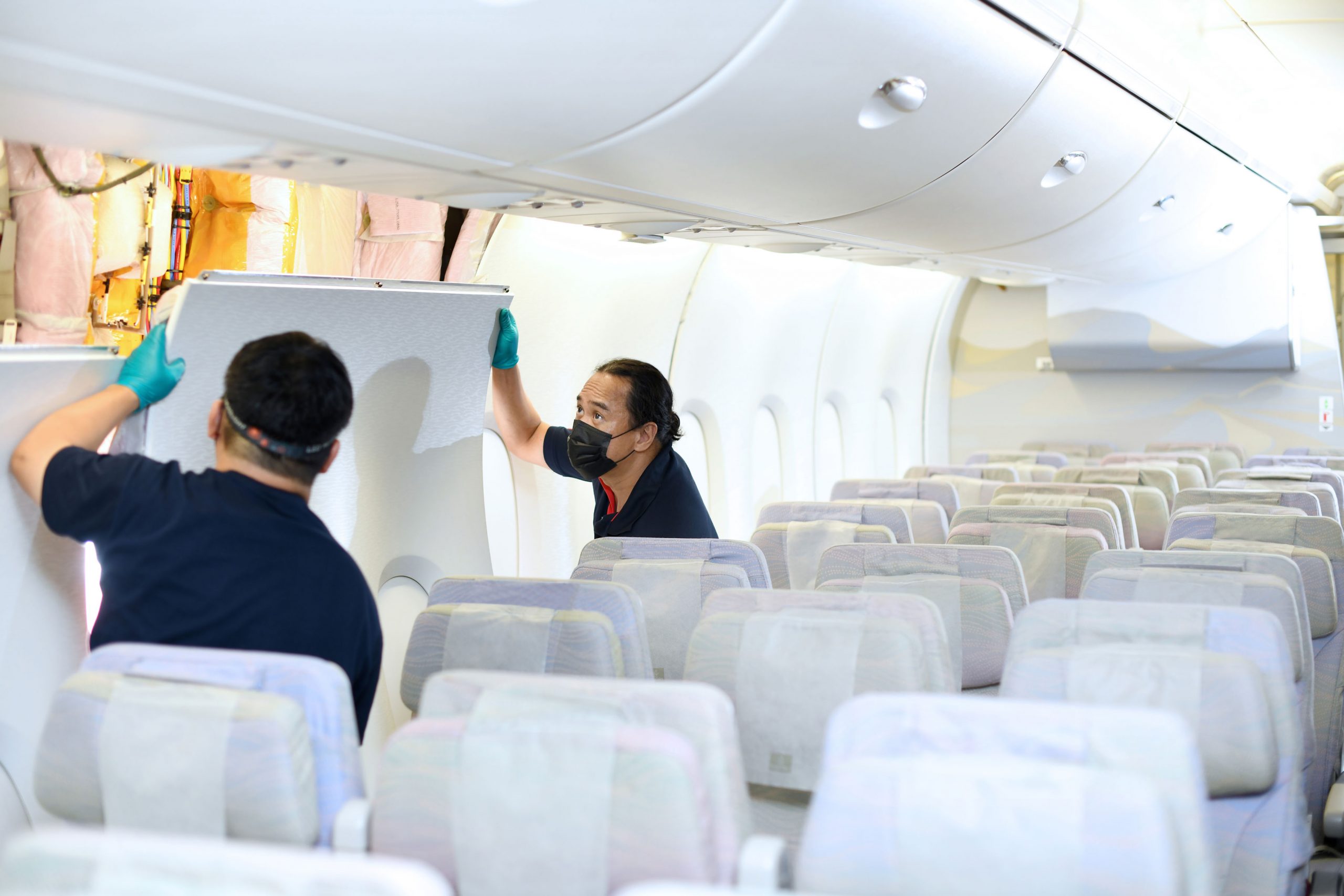
Emirates has kick-started its plans to upgrade the entire interior cabins of 120 Airbus A380 and Boeing 777 aircraft – two of the largest commercial aircraft types in service today.
This ambitious project, representing a multi-billion dollar investment to ensure Emirates’ customers “fly better” for the coming years, officially commences in November and is managed entirely by Emirates’ Engineering team.
The target is to completely retrofit four Emirates aircraft from start to finish every month, continuously for over 2 years. Once the 67 earmarked A380s are refreshed and back in service, 53 777s will undergo their facelift. This will see nearly 4,000 brand new Premium Economy seats installed, 728 First Class suites refurbished and over 5,000 Business Class seats upgraded to a new style and design when the project is complete in April 2025.
In addition, carpets and stairs will be upgraded, and cabin interior panels refreshed with new tones and design motifs including the iconic ghaf trees which are native to the UAE.

No other airline has handled a retrofit of this magnitude in-house, and there’s no blueprint for such an undertaking. Therefore Emirates Engineering teams have been planning and testing extensively, to establish and streamline processes, and identify and address any possible snags.
Trials began on an A380 in July, where experienced engineers literally took each cabin apart piece-by-piece and logged every step. From removing seats and panelling to bolts and screws, every action was tested, timed and mapped out. Potential impediments to completing the installation of Emirates’ new Premium Economy Class or the retrofit of the remaining three cabins in just 16 days were flagged and documented for expert teams to review and address.
As part of the programme, new purpose-built workshops will be set up at Emirates Engineering to repaint, re-trim and re-upholster Business and Economy Class seats with new covers and cushioning. First Class suites will be carefully disassembled and sent to a specialised company to replace the leather, arm rests and other materials.
From the trials, Engineers discovered several unexpected solutions for instance: that existing food catering trucks could be easily repurposed to move parts destined for refurbishment from the aircraft to the workshop for their refresh, as these vehicles had doors of the right width and offer sufficient space.
Until the retrofit programme starts in earnest in November, a cross-disciplinary team has been assembled to regularly review the planning process, address any issues, and track updates on various aspects of the project such as procurement, staffing, and training.
Emirates’ new Premium Economy cabin class, which offers luxurious seats, more legroom, and a service to rival many airlines’ business offering, is currently available to Emirates customers travelling on popular A380 routes to London, Paris, Sydney. More customers will be able to experience the airline’s new Premium Economy cabins starting from year end, as the retrofit programme picks up momentum.
Featured
Eleanor helps over 30 Maldives hotels elevate guest services

Eleanor has been named as one of the top 10 concierge software providers globally.
Based on accurate, timely reviews from real users, the HotelTechAwards rank the world’s best hotel software firms and products and it also provides hoteliers direct access to a growing network of hotel technology professionals and decision-makers.
“The guest experience is the cornerstone of our platform. Our unified resort wide solution, Eleanor, has been built for resorts off the back of many years working in the industry and addresses the needs of both Sales and Marketing departments and perhaps just as importantly, the operational requirements of the team on the ground at the property. The days of resorts working with disjointed systems are now behind us,” says Darren Caple, co-founder and CEO.
“We are on a mission to make the guest’s resort experience as easy and as frictionless as possible. Whereas traditional providers in the market have come at this purely from a guest communication perspective, our background in resorts has allowed us to combine this basic requirement with the streamlining of operational processes. The result is truly a resort wide solution that removes the need for countless different systems to be deployed.
Eleanor allows resorts to deliver consistent, superior service levels to guests across all stages of their journey with contactless features helping to alleviate sensitive touch-points in the post pandemic period. More than 30 properties in the Maldives use our Eleanor platform to help butlers and guest services elevate the guest experience. These properties are seeing an increase in incremental revenue by over 30% and operational efficiencies of 600+ man hours per month. We are also beginning to roll out the platform in some Caribbean properties!”
Eleanor is making waves in the hospitality industry by pushing the conventional limits of what a resort guest app can achieve through its unique ability to facilitate direct bookings for services and activities. The traditional ‘request to book’ feature that is common amongst almost all other hotel apps is removed by a power booking and operational platform sitting at the heart of the solution that covers all the resorts’ departments. It’s this module which realises enormous operational benefits and insights for the resort.
“We, at Eleanor, are humbled and honoured that our clients have provided such positive reviews. Feedback from our clients, partners and hoteliers are incredibly valuable for us and we will continue to improve our offering and services”, said Caple.
To celebrate this success, Eleanor is currently offering resorts a free one month trial, together with free setup and training and discounted monthly fees.
Eleanor, founded in 2018 and has its headquarters in the United Kingdom. Created from over 15 years of hands-on expertise, Eleanor allows resorts to deliver consistent, superior service levels to its guests across all stages of their journey with contactless features helping to alleviate sensitive touch-points in the post pandemic period. Eleanor also helps to unlock operational efficiencies and boost incremental revenue and guest loyalty.
Hotel Tech Report’s Best Concierge Software 2022 Runner Up, reviewed as a preferred and reliable hotel software product by the global hotelier community.
For more information, visit www.eleanorapp.com.
-

 Entertainment6 days ago
Entertainment6 days agoCraig David shares emotional Maldives moment after ‘Rise & Fall’ surprise at resort dinner
-
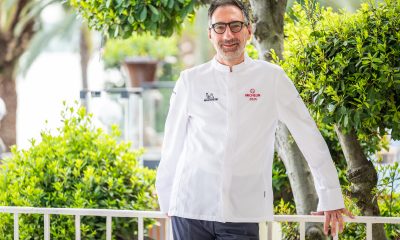
 Food1 week ago
Food1 week agoMichelin-starred Italian chef Maurizio Bufi brings Lake Garda flavours to The Ritz-Carlton Maldives, Fari Islands
-
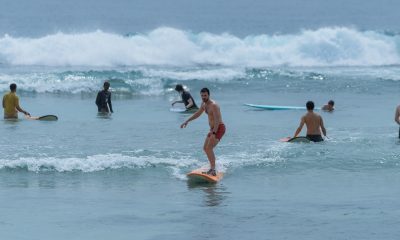
 Action1 week ago
Action1 week agoAtaraxis Grand & Spa hosts integrated work-and-dive corporate retreat in Fuvahmulah
-

 Awards5 days ago
Awards5 days agoFuvahmulah receives Tiger Shark Dive Award at DRT Expo KL
-
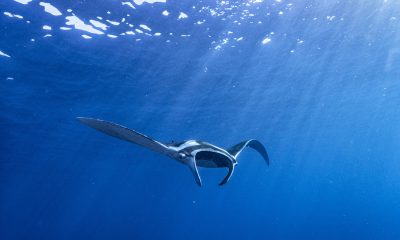
 Action1 week ago
Action1 week agoFour Seasons Landaa Giraavaru shares manta sightings forecast for 2026 and 2027
-

 Love1 week ago
Love1 week agoJW Marriott Maldives Resort & Spa invites couples to a season of romance and refined indulgence
-
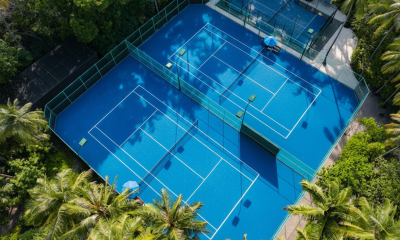
 Action6 days ago
Action6 days agoDusit Thani Maldives adds padel and upgrades sports facilities
-
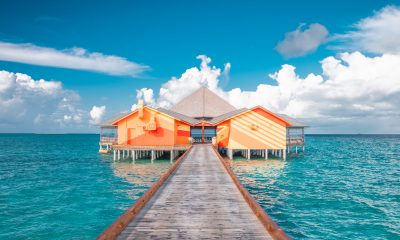
 Cooking7 days ago
Cooking7 days agoONDA debuts at The Standard, Maldives as new Mediterranean dining venue









